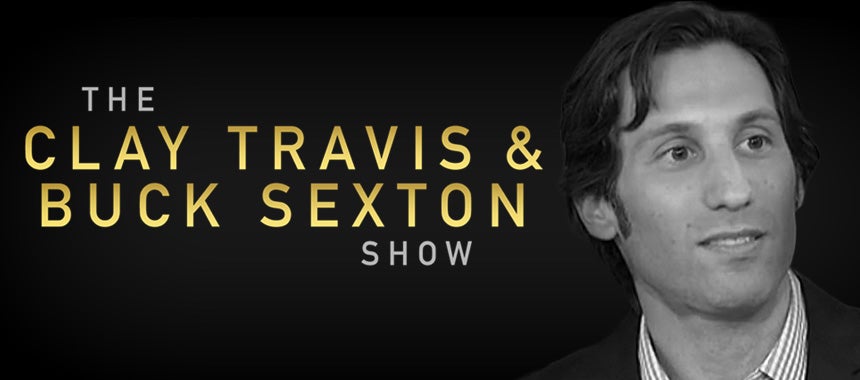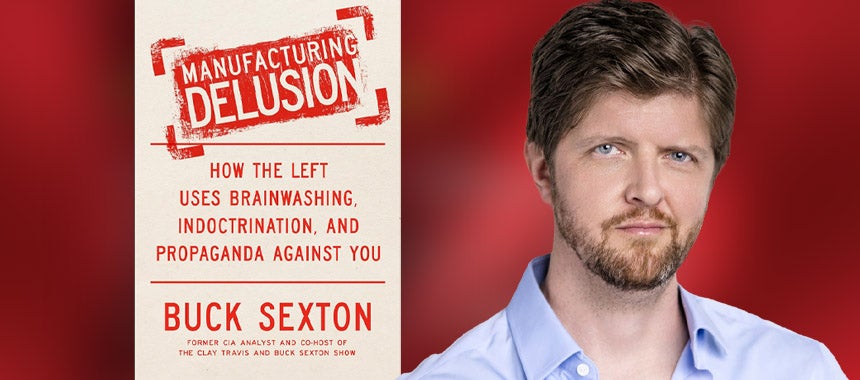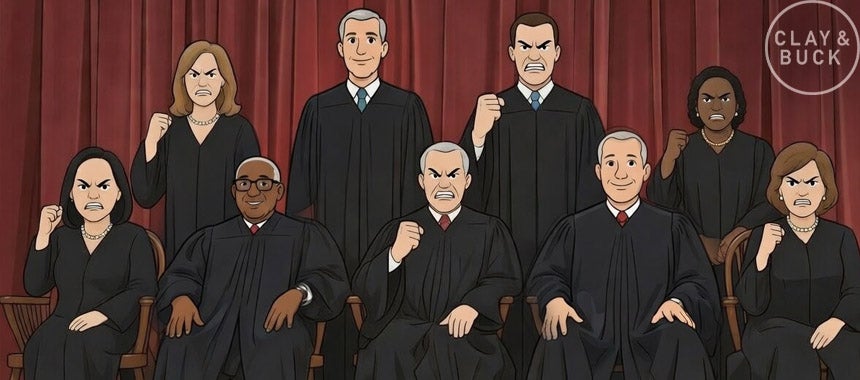New York Mag’s David Zweig Can’t Find Proof Masking Kids Works
23 Aug 2021
CLAY: We bring in, from New York Magazine, David Zweig, and he wrote a great piece — I believe it came out on Friday — looking at all of the data surrounding masks in schools and whether or not they work. David, I thought it was a fantastic piece. I appreciate you making the time to come on with us.
Let’s start here. The biggest study on masks that has been done in the United States for kids was, I believe — as you focused on — a 90,000 group in Georgia which showed if there was no real strong value to masking children. Explain what that study showed, and thanks for coming on with us.
DAVID: Thanks for having me. Yeah, the interesting thing about mask requirements for students is that after I did a really deep dive into the topic — and I’ve spoken with at least a dozen, if not two dozen experts on the issue — there are is no concrete evidence that mask requirements produce a benefit.
And as you noted, one of the only studies — according to the CDC it was the only study when it came out in May — where they actually looked at comparing schools that had a mask mandate with schools that didn’t have a mask mandate… And this is something, what’s essentially called like a cohort study where you’re actually studying comparing with and without.
And this is the only one that did it. And they found that there was no statistically significant difference. And that’s sort of like jargon within statistics saying that unless you have a larger sample size, that they couldn’t find a real benefit. And my angle on this was, “Look, if 90,000 students is not enough to see a benefit of this particular intervention, then that shows that if at best there is a benefit, it’s most likely very marginal.”
BUCK: And so, David — it’s Buck here — when they talk about “the data…” They’ve often spoken at different points the pandemic as though science is settled, obvious, clear, anyone who challenges the dictates of say the CDC or any number of other bodies or organizations is anti-science and being reckless, they will say that we know this works.
Is there something…? This is just… I see it all the time, right? “We know masking kids works,” even though as you point out, well, actually the biggest study that you can find shows that it doesn’t. Do they have some counter-study that is in any way serious? Do they even have data is basically what I’m asking? What do they show us?
 DAVID: (chuckles) Yeah, so, it’s funny. I reached out to the CDC and the American Academy of Pediatrics, which sort of echoes the CDC’s guidance, and I said, “Hey, I’m writing an article for New York Magazine on this. I haven’t been able to find anything. What did you base your guidance on?” And the AAP sent me nothing. And the CDC sent me two links to something about vaccines and something else that is irrelevant.
DAVID: (chuckles) Yeah, so, it’s funny. I reached out to the CDC and the American Academy of Pediatrics, which sort of echoes the CDC’s guidance, and I said, “Hey, I’m writing an article for New York Magazine on this. I haven’t been able to find anything. What did you base your guidance on?” And the AAP sent me nothing. And the CDC sent me two links to something about vaccines and something else that is irrelevant.
And like I said a minute ago, I’ve reached out to numerous experts. And every time I reach out to someone who’s a real pro-mask mandate for children, they can’t send me anything. What they send is a study… One of them sent me a study that was done in Massachusetts where everyone was wearing a mask, and this is the problem.
There’s been researcher at Duke University who got a lot of attention for a big study they did in North Carolina, and the top line finding they said was, “Masks work! Mask mandates work on children!” But if you look at their study everyone was wearing a mask or at least they were required. You can’t say that something works if everyone’s doing it.
The equivalent would be if I said everyone wearing shoes in school is beneficial for lowering covid. You can’t know that without doing a comparison. And what’s important about this Georgia study, which I wrote about in my article — which I would love for your listeners to check out where I get into more detail — is, this is the one study, according to the CDC itself, that actually compared measures, and they could not find a statistically significant difference, a benefit of masking children as a requirement.
CLAY: Well, I appreciate you writing this piece, David, because I’ve got kids. I don’t know if you have kids. We’ve talked a lot about it on the show and certainly a lot of our listeners do and have kids. I’m curious about two different things, and I would encourage people to go read your piece, and we will tweet it out from the @ClayAndBuck account at New York Magazine.
You’ve gotten some doctors to talk. Buck and I have both had a lot of conversations with doctors where they will say, “Yeah, there’s no data necessarily that shows masks work,” but they’re afraid to speak out because they feel like they’re going to be shamed by their colleagues or their medical organization. I’m curious if you heard that from some of the doctors that you reached out to.
And second part of this question: What reaction have you personally got? Because it’s as if when you talk about the data and the science and question kids in masks, at least for what Buck and I see, you immediately get called to task as if you don’t care about childhood safety, which (chuckles) obviously is not true.
You’re just looking for a databases there. I’m curious what the reaction to this piece you have seen and what kind of reaction you saw, if any, from doctors about being reticent to speak on the record with you about this subject.
DAVID: Those are two excellent questions. To hit the first one, yeah, I’ve been writing about children and covid since spring of 2020. I was the first person to say, “Looking at Europe, kids should be back in school in America. Why aren’t they back in school here when they are throughout Europe?”

So ever since then I’ve been talking with experts around the country and the world, and over and over again — I have a rolodex filled with people, top infectious disease specialists, immunologists and others throughout the country — who say, hey, thank you so much for writing this. I want to talk to you, but I can’t go on the record with this.
CLAY: Yep.
DAVID: I have sources inside the NIH, at NIAID — that’s Fauci’s agency — who vehemently disagree with a lot of what’s going on but they cannot talk about it. So what happens if you are a specialist at Stanford or Columbia or one of these top hospitals, you are either explicitly told that you’re not allowed to go public with things or it’s just implicit.
It’s very hard. It’s a big deal if you are a physician or a public health expert to go against the CDC. Your boss, who’s running the department at your University Hospital, they don’t want that type of headache. So, in doing my reporting for the last year — and after and in particular on this masking article as well — I have some very highly placed people.
I have someone in my article who is very high up in the American Academy of Pediatrics, and this doctor refused to talk on the record. I was able to get some quotes from this person. But understandably, this is their livelihood, and there is such an environment today where people cannot speak out. And I should note that look. I probably don’t share a lot of the political views perhaps of you guys or your audience, though some of them I do. I am approaching this apolitically.
CLAY: Yes.
DAVID: I am not interested in the tribalism. I am interested in the data and the science, and that’s what I’ve been following. And that sort of segues to your second question which is, “Yeah, I’ve taken huge hits and so do some of the people who I end up quoting in my articles over time including this one.” There is a sort of…
I think there’s something that’s very threatening, and understandably so, sort of troubling for people when something that they believe to be true, something that they’ve been told is true and then when they’re confronted with information — and this is kind of human nature.
When you’re confronted with something that really challenges this foundation of what you’ve been told. As you noted, they’re not saying, “Look, we think we might have some good evidence.” No, the CDC is saying, “This works.” Many public health officials say, “We know 100% this works.” But when you actually look at the data and you drill down — and you’re someone like me or journalist who’s investigating this — and I ask, “Please give me the best evidence you possibly can give me on this.”

And the thing they send you is something that’s not a comparative study where everyone’s doing it — everyone is 100% are wearing masks — that is not persuasive. And I’ll sort of add a tag onto that point. But the thing that is persuasive to me is that I continually look outside of the United States.
And we have such a sort of solipsistic view of what’s going on here. What a lot of people don’t realize is that the CDC’s guidance differs dramatically from that of the World Health Organization and that there are numerous countries throughout Europe that are not masking little kids. They’re not even masking kids up to 12 years old.
And a number of countries are saying even above 12-year-olds, even kids in high school, “Only wear masks in the hallways or other crowded areas.” So people need to really understand that what we are doing in many regards is really an outlier type of situation from a lot of other countries around the world.
BUCK: We’re speaking to David Zweig. His piece in New York Magazine, it is very good. It’s “The science of masking kids at schools remains uncertain.” Go on NYmag.com to read that. David, before I let you go, we were talking about the discussion of how people can’t speak out, top infectious disease doctors ’cause one of the frustrating things has been people say, “All the experts say…”
And both Clay and I have contacts and networks where we know that is a lie. So when people go on TV and say, ‘All the experts degree, dot-dot-dot,” and they say something, a lot of the time that’s just not true. I want to know if you’ve come across as you do this research — and you’re, as we say, going at this apolitically — do you come across other journalists who have look at this issue specifically of masking but just more generally about lockdowns or mitigation measures and say, “Wow, I was actually wrong about some of this?”
DAVID: (bursts out laughing) Yeah, I gotta tell you, I haven’t seen too many mea culpa from journalists —
BUCK: Yeah.
DAVID: — or even from scientists. There have been a couple, and the point is it’s so notable when you see an epidemiologist or someone else say, “Hey, I was mistaken.” But one of the things we’ve seen over and over is that these models and these projections that have been coming out from even way back from March of 2020 have been wrong over and over again.
But yet the same people end up being interviewed and no one adds a little disclaimer: “Just so you know, the person we have on our TV show right now has been wrong repeatedly.” But, anyway, they’re the bottoms what they think’s gonna happen in the next month. So people need to take it with a grain of salt. And I am… Again, to me this is not a political issue. I do have kids.
You had asked that before, and of course (laughs) I don’t want my kids to be in danger but what some of the experts in my article talked about is, this is not a benign intervention. I know there are some adults who say, “It’s no big deal.” But none of us as adults in America know what it’s like to have been forced to wear a mask for years of our life as a child all day, every day in school.
This is a dramatic experiment! Do I think it’s a big deal for a kid to wear a mask for a few weeks or a month? Probably not. But we’re looking at something that is more than year and a half now, and what I talk about in the article is that Rochelle Walensky, the director of the CDC, by her criteria these, masks aren’t coming off for a very long time.
It’s only until every kid is vaccinated, every adult is vaccinated and other criteria. And as we know, a certain portion of the public is not going to vaccine their kids based under an emergency use authorization. So the idea of that is the benchmark that we need to reach?

There are little kids — 2 years old, 3 years old, even 10 years old — who are going to be wearing masks all day, every day in school. As the people I note in my article include some real pediatric specialists and others, this can have real consequences, particularly for younger kids who are learning how to read and other things where you need to see a human’s face.
CLAY: David, this has been fantastic. Science is about debate, and I appreciate you finding some scientists and doctors who are still willing to point out that this is a very unsettled issue at best, and, frankly, that the evidence doesn’t support it all. I’d encourage everybody out there to go read this article. We’ll tweet it out, we’ll Facebook it out, everything else. Thank you for your time.
DAVID: Thanks for having me.
CLAY: That is David Zweig at New York Magazine. That went pretty well?
BUCK: Very solid. We call balls and strikes here, Mr. Clay, and he hit that one nicely.
Recent Stories
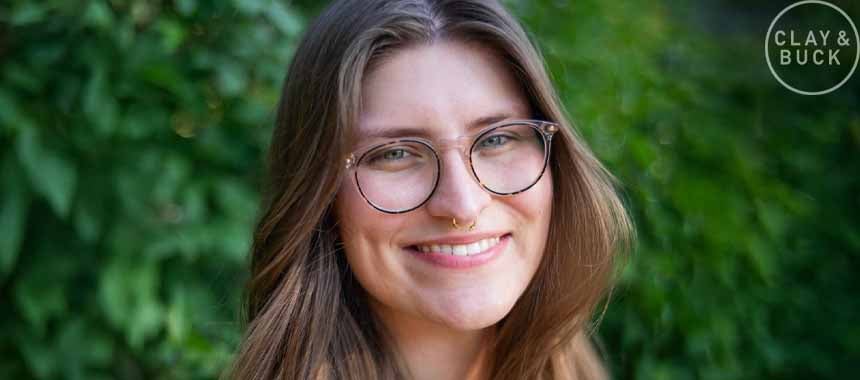
Soren Aldaco: A Detransitioner's Story
One of our most powerful interviews in recent memory. Don't miss it.
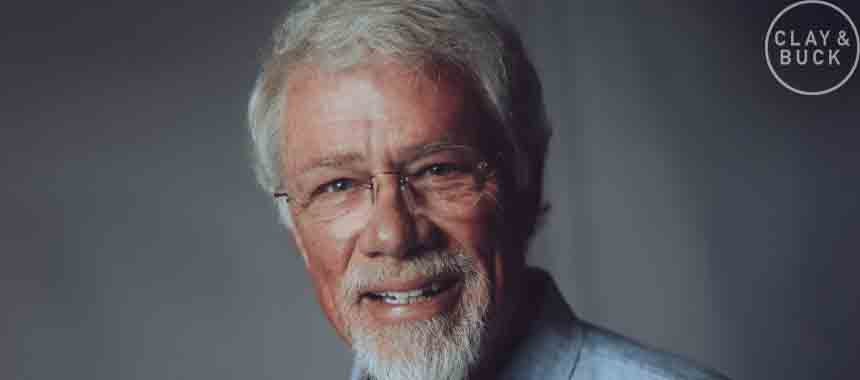
Jeff Hays, Director of MAHA Uncensored, a Hard Look at the Business of American Medicine
An inside look at what drives the American medical system.
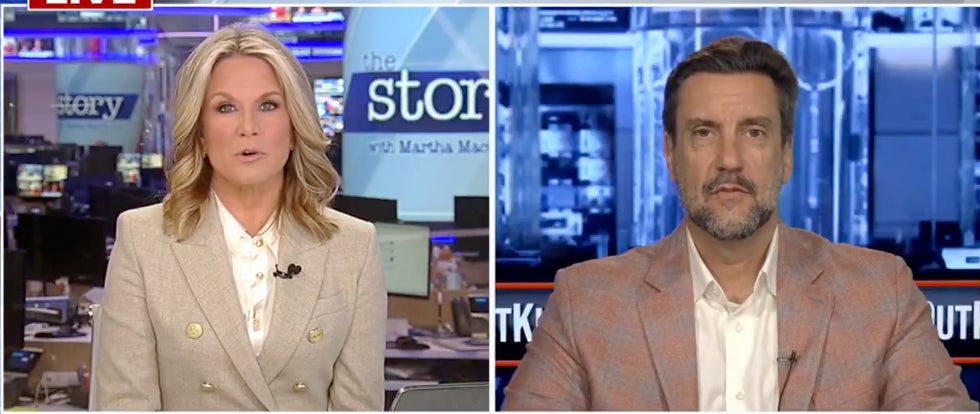
Clay Praises Alysa Liu's Gold Medal for the USA
Miss Clay on The Story with Martha MacCallum? Watch it here.


